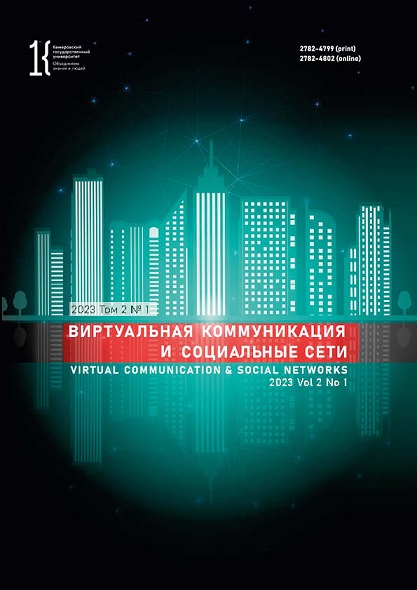Kemerovo, Russian Federation
The article analyzes the problems and risks associated with the digitalization of higher education. Media education is considered as the main countermeasure, the purpose of which is to develop the media competence in university students. The authors substantiated the expediency and prospects of developing media competence in extracurricular activities. The empirical study tested the effectiveness of media competence development via extracurricular activities at Kemerovo State University, namely creating media content for university media resources. The level of media competence in the experimental and control groups was analyzed using the methodology of Suggestiveness Assessment and a test questionnaire for assessing social and communicative competence. The experiment also employed an authentic questionnaire of Priorities of Student Media Consumption. The study involved 70 students of Kemerovo University. The media competence in the experimental group appeared to be much higher than in the control group. This result confirmed the high efficiency of developing media competence via extracurricular activities. The article introduces a special educational program aimed at forming the basic media knowledge at university.
digitalization, educational environment, students, virtual communication, media education, media competence
1. Ivshina D. S. Formation of media competence of adolescents in the classroom in the studio of journalism. Student scientific forum: materials of the V professional student scientific conference. Moscow: RAE, 2013. (In Russ.)
2. Postyushkov A. V. Problems of Education Development in the Digital Economy. Moscow: International Academy of Education, 2021, 169. (In Russ.)
3. Rogov E. I. Handbook of a practical psychologist. Moscow: VLADOS, 1999, 384 p. (In Russ.)
4. Seryiy A. V., Yanitsky M. S. Semantic aspects of experiencing the crisis of social identity in the event of a forced change in life situation. Psychological research, 2015, 8(43). (In Russ.)
5. Skorova L. V., Kyshtymova I. M. Pedagogical media psychology: methodological substantiation of the integration model. Science for Education Today, 2020, 10(5): 120-140. (In Russ.)
6. Tomyuk O. N., Dyachkova M. A., Kirillova N. B., Dudchik A. Yu. Digitalization of the educational environment as a factor of personal and professional self-determination of students. Perspektivy nauki i obrazovania, 2019, (6): 422-434. (In Russ.)
7. Fateeva I. A. Media education: theoretical foundations and implementation experience. Bulletin of the Chelyabinsk State University, 2008, (30): 185. (In Russ.)
8. Fedorov A. V. Media education. Media pedagogy. Media journalism. M.: Information for everyone, 2005, 1400. (In Russ.)
9. Fedorov A. V. Development of media competence and critical thinking of students of a pedagogical university. Moscow: Information for everyone, 2007, 616. (In Russ.)
10. Yanitskiy M. S. Psychological aspects of digital education. Professional education in Russia and abroad, 2019, (2): 38-44. (In Russ.)
11. Yanitskiy M. S. States of mental maladaptation in students and ways of optimizing the adaptation process in the university. Issues of General and Differential Psychology. Kemerovo: Kuzassvuzizdat, 1998, 58-67. (In Russ.)















